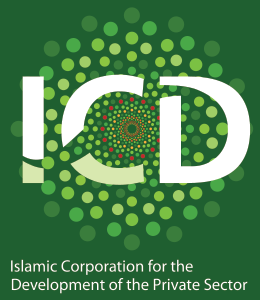About ICD
The Islamic Corporation for the Development of the Private Sector (ICD) is a multilateral organization affiliated with the Islamic Development Bank (IsDB).
The Islamic Corporation for the Development of the Private Sector (ICD) is a multilateral organization affiliated with the Islamic Development Bank (IsDB). This first section of the report outlines our background and purpose.
Its authorized capital stands at USD 4 billion, of which USD 2 billion is open for subscription. Its shareholders consist of the IsDB, 56 member countries and five public financial institutions. Established during the 24th annual meeting of the IsDB Board of Governors in Jeddah in Rajab 1420H (November 1999), ICD is headquartered in Jeddah.
Since its establishment in November 1999, the Islamic Corporation for the Development of the Private Sector (ICD) has consistently centered its efforts on fostering inclusive and dynamic growth through private sector development. ICD’s mission complements the Islamic Development Bank’s (IsDB) role by actively developing and promoting the private sector as a catalyst for enhancing economic growth and prosperity. With a vision to become a premier Islamic multilateral financial institution dedicated to this purpose, ICD stands committed to driving sustainable and thriving economies.
As the private sector arm of the Islamic Development Bank (IsDB) Group, ICD aligns its objectives with the principles of Shari’ah, aiming to: i) identify growth-oriented opportunities and initiatives within the private sector, ii) offer an extensive array of productive financial products and services for private sector development, iii) mobilize supplementary resources for the private sector in member countries, and iv) promote the advancement of Islamic financial and capital markets.
Our Mission
To complement the role played by the Islamic Development Bank through the development and promotion of the private sector as a vehicle for boosting economic growth and prosperity.
Our Vision
To become a premier Islamic multilateral financial institution for the development of the private sector.
We offer three sets of Shari’ah compliant business products and services to private sector clients in member countries.
Where we operate
We have been operating in these regions for more than 20 years, delivering financial services and supporting growth where and when it matters most.
Disclaimer: Any country borders or names used in this report do not necessarily reflect ICD’s official position. Any maps are for illustrative purposes and do not imply the expression of any opinion of ICD concerning the legal status of any country or territory or concerning the delimitation of frontiers or boundaries.
ICD Member countries
- Afghanistan
- Albania
- Algeria
- Azerbaijan
- Bahrain
- Bangladesh
- Benin
- Brunei
- Burkina Faso
- Cameroon
- Chad
- Comoros
- Cote d’Ivoire
- Djibouti
- Egypt
- Gabon
- The Gambia
- Guinea
- Guinea Bissau
- Indonesia
- Iran
- Iraq
- Jordan
- Kazakhstan
- Kuwait
- Kyrgyz Republic
- Lebanon
- Libya
- Malaysia
- Maldives
- Mali
- Mauritania
- Morocco
- Mozambique
- Niger
- Nigeria
- Sultanate of Oman
- Pakistan
- Palestine
- Qatar
- Saudi Arabia
- Senegal
- Sierra Leone
- Somalia
- Sudan
- Suriname
- Syria
- Tajikistan
- Togo
- Tunisia
- Turkey
- Turkmenistan
- United Arab Emirates
- Uganda
- Uzbekistan
- Yemen
